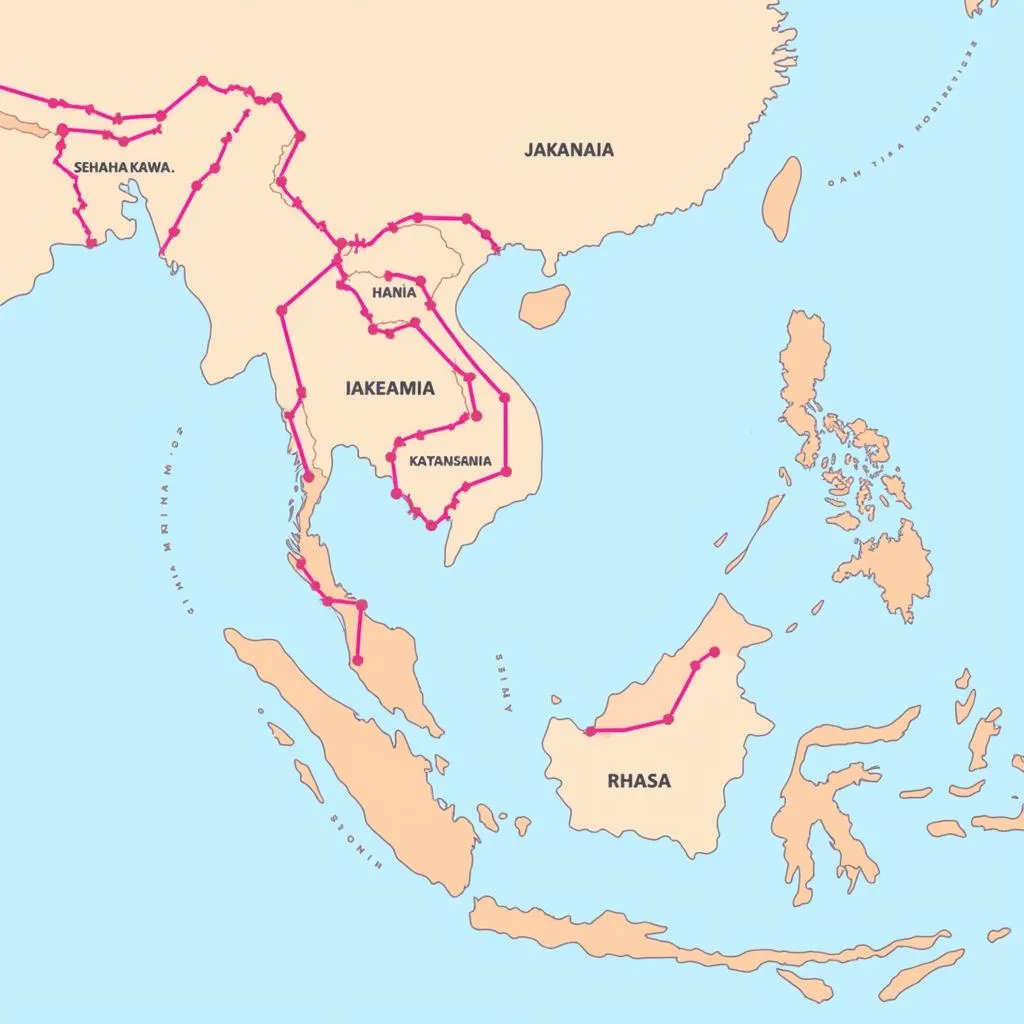The Association of Southeast Asian Nations (ASEAN) stands as a testament to regional cooperation and economic dynamism. Amidst the complexities of global trade, the ASEAN Plus Three (APT) framework emerges as a strategic alliance, amplifying the region’s influence and fostering sustainable growth.
Deciphering APT: A Catalyst for ASEAN’s Ascendancy
Established in 1997, the APT framework brought together the ten ASEAN member states with China, Japan, and South Korea – three economic powerhouses in Asia. This strategic partnership aims to enhance political dialogue, deepen economic integration, and address shared challenges, ultimately propelling the region towards greater prosperity and stability.
Economic Synergy: The Cornerstone of APT
 APT Economic Partnership
APT Economic Partnership
At the heart of the APT lies a robust economic agenda. Through trade facilitation, investment promotion, and financial cooperation, the framework unlocks unprecedented opportunities for businesses and investors across the region. Key initiatives include:
- ASEAN+3 Macroeconomic Research Office (AMRO): This vital institution provides economic surveillance, analysis, and policy recommendations, contributing to regional financial stability.
- Chiang Mai Initiative Multilateralisation (CMIM): This currency swap arrangement offers a safety net for member countries facing short-term liquidity difficulties, further strengthening regional financial resilience.
- ASEAN+3 Free Trade Area (FTA): While not yet fully realized, the pursuit of an APT-wide FTA signifies the commitment to fostering seamless trade and investment flows within the region.
These collaborative efforts have yielded tangible results, solidifying the APT’s role as a driving force behind ASEAN’s economic success story.
Beyond Economics: APT’s Multifaceted Approach
 APT Collaboration for Food Security
APT Collaboration for Food Security
The APT’s significance extends beyond the realm of economics. Recognizing the interconnectedness of regional challenges, the framework adopts a comprehensive approach, addressing critical areas such as:
- Food Security: Collaborative efforts focus on enhancing agricultural productivity, ensuring food safety standards, and promoting sustainable agricultural practices.
- Energy Security: The APT facilitates dialogue and cooperation in areas like renewable energy development, energy efficiency, and regional energy infrastructure.
- Disaster Management: Recognizing the region’s vulnerability to natural disasters, the APT promotes joint disaster preparedness, response, and recovery mechanisms.
By fostering collaboration across diverse sectors, the APT strengthens ASEAN’s resilience and equips the region to navigate emerging challenges effectively.
Navigating Challenges, Shaping the Future
While the APT holds immense promise, it also faces complexities inherent in any multilateral framework. Addressing disparities in development levels, fostering deeper integration, and managing geopolitical dynamics remain ongoing priorities.
Despite these challenges, the APT’s enduring relevance lies in its ability to adapt and evolve. By embracing innovation, strengthening people-to-people ties, and fostering inclusive growth, the APT will continue to empower ASEAN and shape a brighter future for the region.
Conclusion
The APT stands as a testament to the power of regional collaboration. By harnessing the collective strengths of ASEAN and its Plus Three partners, the framework unlocks economic potential, promotes stability, and enhances cooperation across various sectors. As ASEAN continues its journey towards greater integration and prosperity, the APT will undoubtedly play a pivotal role in shaping the region’s future.
FAQ
1. What is the main objective of the APT framework?
The APT aims to enhance political dialogue, deepen economic integration, and address shared challenges among ASEAN member states, China, Japan, and South Korea.
2. How does the APT contribute to ASEAN’s economic growth?
The APT promotes trade facilitation, investment promotion, and financial cooperation through initiatives like AMRO, CMIM, and efforts towards an APT-wide FTA.
3. What are some of the key areas of cooperation within the APT beyond economics?
The APT focuses on collaboration in food security, energy security, disaster management, and other critical areas.
Contact Us
For inquiries or assistance, please contact:
Phone Number: 0369020373
Email: aseanmediadirectory@gmail.com
Address: Thon Ngoc Lien, Hiep Hoa, Bac Giang, Vietnam.
Our dedicated customer support team is available 24/7 to assist you.

